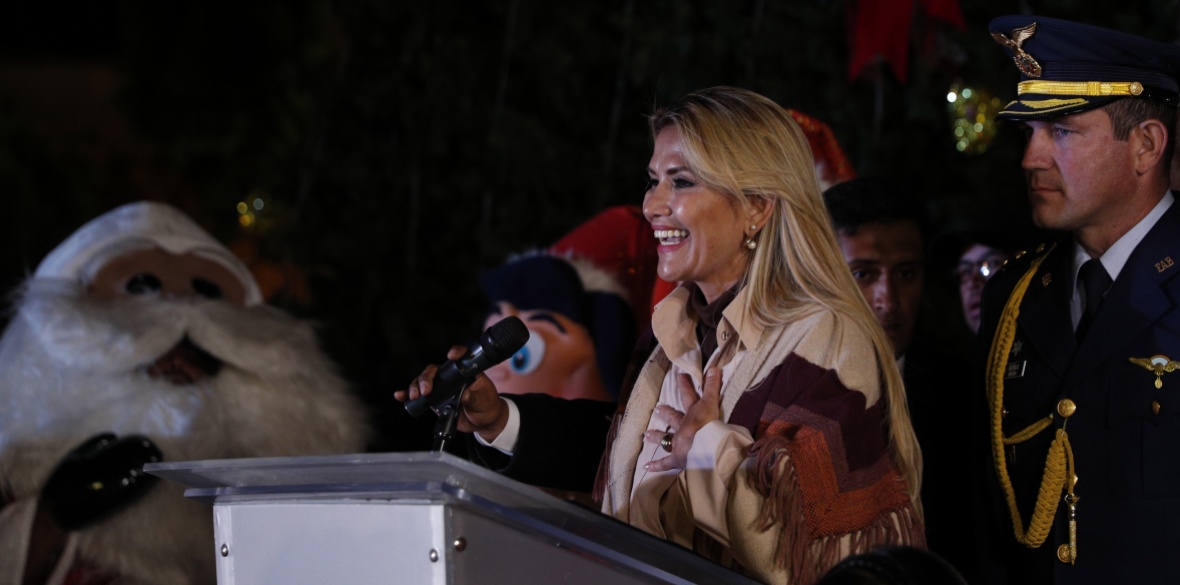This is the last article you can read this month
You can read more article this month
You can read more articles this month
Sorry your limit is up for this month
Reset on:
Please help support the Morning Star by subscribing here
THERE “now exists state terrorism in Bolivia,” Argentinian human rights activists have warned, following the ousting of president Evo Morales in a US-backed fascist coup last month.
The delegation reported on massacres at Sacaba and Senkata, which they said were the worst crimes against human rights committed by the regime of new President Jeanine Anez, a conservative Catholic who has branded Bolivia’s indigenous population “satanic.”
On November 15, nine people were killed in the town of Sacaba when police and soldiers attempted to stop a group of pro-Morales coca growers and farmers from marching to the city of Cochabamba.
Four days later, nine others were killed in the El Alto neighbourhood of Senkata, just outside the capital city La Paz, during a police and military operation to clear a blockade of a fuel plant.
A report by the Inter-American Commission on Human Rights released on Tuesday calls for an international investigation, saying it found “strong indications of human rights violations, with profound repercussions for the life of Bolivian society.”
Ms Anez dismissed the report, which documented 36 deaths since last month’s coup, as “unfair.”
But the findings were corroborated by the Argentinian delegation, which was threatened with arrest on arrival in Bolivia last week, with female members of the delegation subjected to humiliating strip searches.
They collected more than 100 testimonies documenting serious violations of human rights, such as “forced disappearances, assassination, torture, sexual crimes, selective persecution of social movement leaders, attacks against state officials under Evo Morales, blacklisting, suppression of demonstrations, restrictions on press freedom, spying and illegal surveillance.”
Speaking at a press conference on Wednesday, lawyer Roberto Carles said: “This process cannot have an institutional resolution if there is no truth or justice. We have reports and have seen instances of crimes against humanity.
“It is obvious that there is a lack of activity by any supranational organisation such as the Inter-American Commission on Human Rights or any other country initiating a judicial process, such as Argentina with the victims of Francoism or Spain with the Chilean dictatorship.”
He explained that the delegation had been threatened with arrest “in case we were committing an act of sedition or terrorism” and their visit was hampered by the authorities blocking meetings with politicians from Mr Morales’s Movement Towards Socialism.
The delegation called for action by the international community to ensure that human rights are upheld in Bolivia and for observers to participate in the new elections called by the regime. However, these have been branded a sham by supporters of Mr Morales, who say he remains the country’s legitimate leader and demand his immediate reinstatement.










